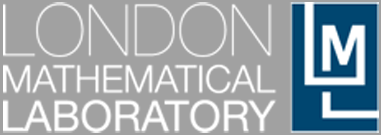

We are searching for a researcher to contribute to an ambitious experiment addressing how risky decisions are made and why. The research combines computational cognitive modelling, economics, and neuroimaging. The successful candidate will likely be a postdoc, though candidates without a PhD can be considered. The position is based in Copenhagen, with opportunities for exchange with collaborators in London and summer school training in Italy.
You will be part of “The ergodicity experiment” project. The ergodicity experiment is a multidisciplinary project funded by the Novo Nordisk Foundation under its interdisciplinary exploratory synergy program. It involves collaboration between the London Mathematical Laboratory (PI: Ole Peters), and the Danish Research Centre for Magnetic Resonance.(PI: Ollie Hulme).
Summary of the project: Ergodicity is a foundational concept in physics. It refers to two types of average. The first is an ensemble average, which is an average over all possible states of a system at a single point in time. The second is a time average, which is an average over all states visited by a system over a long time. Ergodicity determines whether these averages are identical. Here we ask how the brain computes averages when making decisions. This is a crucial question because current theories of decision making ignore time averages, focusing exclusively on ensemble averages. This is a problem in settings where ergodicity is broken and the two averages differ. It is a problem because it is the time average, not the ensemble average, that is most relevant to an individual person’s future. In this project we will test a new theory which places time averages at the core of human decision making. This “ergodic decision theory” offers a simple explanation of how humans respond to risk, how they value time, and how they estimate uncertainty. Combining advanced methods in functional neuroimaging and ergodic decision theory, we will explore how time averages are computed by the reward system. In doing so, we explore how well the theory generalises over large populations, how robust it is over long timescales, and how it extends to different dynamical settings.
A brief video of our experimental plans is available here: https://youtu.be/-C6KFCU4nFI
Your role: Your role will be designing the neuroimaging experiments, analysing the data, and writing the data up for publication and dissemination. This will involve daily communication with other team members involved in the behavioral experiments and modelling. Tasks include acquiring data, preregistering models and hypotheses, engaging and supporting adversarial collaborators, coding experimental paradigms, building computational models, coding data processing pipelines, and related tasks.
Essential skills & experience:
- Bayesian modelling and statistics (e.g. hierarchical modelling, MCMC, Bayesian cognitive modelling, JASP, R, JAGS...)
- Experimental design and analysis of fMRI data (e.g. SPM, Freesurfer, FSL, fMRIprep…)
- Coding (e.g. Python, Matlab/Octave…)
Advantageous skills & experience:
- Computational modelling (e.g. reinforcement learning, machine learning, active inference..)
- Mathematical methods (e.g. calculus, linear algebra, probability theory, information theory...)
- Open science practices including data and code curation (Github, preregistration, registered reports... )
- Research experience in the field of cognitive and computational neuroscience; neural / behavioral / experimental economics
- A PhD, Masters, or corresponding qualification, in a quantitative discipline
Working at DRCMR. You will be part of the Reward group headed by Ollie Hulme at the Danish Research Centre for Magnetic Resonance (www.drcmr.dk). You will collaborate with other groups at DRCMR including those of Hartwig Siebner, and David Meder, as well as many other experts. DRCMR is a leading research center for biomedical MRI in Europe (www.drcmr.dk). Our mission is to triangulate MR physics and basic physiology from preclinical to clinical research. Approximately 75 researchers from a diverse range of disciplines are currently pursuing basic and clinically applied MR research and its validation with a focus on structural, functional, and metabolic MRI of the human brain and its disorders. The DRCMR is embedded in the Center for Functional and Diagnostic Imaging and Research, a large diagnostic imaging department including all biomedical imaging modalities at the Copenhagen University Hospital Amager and Hvidovre, Hvidovre, Denmark. DRCMR has a state-of-the-art MR-research infrastructure enabling translational research, which includes a pre-clinical 7T MR scanner, six whole-body MR scanners (one 7T, three 3T and two 1.5T scanners) and a High-Performance Computer cluster dedicated for neuroimaging data. The DRCMR has pre-clinical labs, a neuropsychology laboratory, an EEG laboratory, and two laboratories for non-invasive brain stimulation. It is situated ~25mins cycle ride from central Copenhagen, a city consistently ranked one of the highest in the world for quality of life [link].
Application deadline: 30th April 2021. Video interviews of shortlisted candidates will be held in May.
Starting date: expected to be August 1st, or as soon as possible thereafter.
Salary and terms of Employment: You will be employed for a period of 36 months at the Danish Research Centre for Magnetic Resonance. Salary, pension and terms of employment are in accordance with the agreement between the Danish Regions (Danske Regioner) and the relevant professional organization. The salary depends on background education and seniority. Further supplements can be negotiated. Note that candidates coming from abroad may be eligible for tax reductions. The position is open for candidates of all nationalities. We see diversity as a strength and encourage all candidates regardless of gender, age, ethnicity, disabilities or religion to apply.
Application details: Applications should include a cover letter, CV, list of publications & research outputs, together with the names of three references.
Applications must be submitted on-line through the RegionH job portal. Click HERE.
Related roles: A second job associated with this project is available with our collaborators in London, details can be found here. Applicants are allowed to apply for both jobs but should indicate this clearly in their cover letter.
For further information regarding the position, please contact Ollie Hulme:


